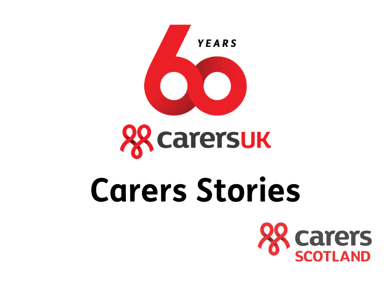At some point, you may decide you want to combine work with caring, or you may want to work if your caring role changes or ends. We suggest ways to identify and develop your skills and gain confidence to find the type of employment you would find fulfilling.
I’m considering working again but where do I start?
The thought of getting back into work can feel like a big step. A good start is to think about what job you might want by identifying your skills and interests, and finding out what support might be available to help you take this step.
As a helpful introduction, see our free programme called Learning for Living – this is useful as a starting point for focusing on yourself, clarifying your goals and planning ahead. For more details, see ‘What training courses are available?’
If you are claiming benefits, working or studying might impact these benefits so it would be a good idea to have a benefits check before you make any decisions. Use this benefits calculator or email our helpline for guidance on advice@carersuk.org
Identify your skills and interests
If you're not sure what you would like to do, it might be helpful to list the skills and interests you have, particularly noting what you’ve found satisfying or fulfilling.
Consider the skills you have gained from:
- any paid work that you have done
- any volunteering work you've undertaken
- your role as a carer.
Examples of some skills you might have gained from your caring responsibilities:
- prioritising and organising
- time management
- managing a budget
- managing a schedule
- negotiating with professionals
- communication skills
- learning new skills quickly and efficiently (ie if you needed to learn how to move and handle someone, use certain equipment or administer medication)
When thinking about your interests, consider:
- what you enjoy doing
- how you would like to use your skills
- things you miss doing that you once did, eg from previous work or volunteering.
Do some research
You could have a look on some careers websites to try and identify the sort of job that matches your skills and interests.
You could start by looking at My World of Work – the online service for careers information and advice, with access to a range of tools and advice to help you plan and manage careers and job search.
Once you have identified possible jobs, you could then look into any training you might need to build your confidence or refresh skills you used to have.
Skills Development Scotland provides an all-age service to individuals at all stages of their job seeking journey and to support in-work progression; their 'What we do' page provides links to a range of support. You can also contact the SDS Customer Contact Centre for further information and support.
Career Information Advice and Guidance (CIAG) Centres in each local area also provide information and a range of services including advice on career choices, apprenticeships, training and learning; help with CVs, application forms and interviews; and specific support for parents and carers. Find your nearest Centre by entering your postcode here
There might be particular ‘employability’ support available in your local area, to help develop the particular skills and confidence you might need to plan and achieve your goals. Search here for contact details in your area and for information on the programmes available.
What training courses are available?
Our Learning for Living e-learning programme is a course that has been set up to help carers specifically. It can help you identify the unique skill set you've gained from your caring experiences. These transferable skills can add significant value to the work setting or local community. The course features a range of modules covering everything from communicating well to effective goal setting.
The Open University also has a free online course called Caring Counts which helps carers reflect on their experiences, and recognise the range of skills and abilities developed from their caring role.
Additionally, the Open University has a wide range of (over 1000) free e-learning resources and courses through OpenLearn. These courses cover many different subject areas and are designed to help increase confidence and develop skills.
Adults who are 25 and over can also access a range of online courses through FutureLearn to help people upskill for their current job or reskill for a new role. Courses are free with access for 12 months.
These and other courses are also available to explore through The Skills Toolkit, offering a range of courses to help build basic skills as well as offering short courses on networking, communication, personal development and wellbeing.
If you're trying to work out whether any particular training courses would be suitable for the types of jobs you want, you could get in touch with your Career Information Advice and Guidance (CIAG) Centre . They have advisers who can provide information and guidance on developing skills and training.
Sometimes local advice agencies, like carers' organisations, might know of local training courses that are suitable for carers. To find organisations in your area, use our local directory.
If you need some help with the cost of any courses, then you could try the following:
- There are sometimes grants you can apply for – you could see if there are any local grants by contacting a local advice agency, such as a carers' organisation – you could also run a more general grants search with a charity called Turn 2 Us who have a database of lots of different grant giving organisations.
- You might be eligible to access an Individual Training Account – these are available to help people develop the skills they need for work, giving learners who up to £200 towards a single training course or training episode per year. And because it’s not a loan, the money doesn’t need to be paid back.
- There are sometimes specific education grants and bursaries that you can apply for – the gov.uk website also has some information on this for adult learners.
- Local educational establishments sometimes offer discounts to people on certain benefits, so if you are claiming benefits or are on a low income, it is worth finding out what discounts or concessions your local educational establishments offer.
- If you are still looking after someone, you could have a carer’s assessment.
Some further tips
If it has been some time since you applied for a job, you can gain lots of guidance online with tips on CV writing and interviews. These sites are worth a look:
CV library – for guidance on improving your CV
Monster – for help with interview techniques
Reed – with tips on preparing for a job interview
Guardian Jobs – offers advice on job interviews and has a jobs site
ACAS can also provide a wealth of information on different training programmes as well as useful advice on matters related to returning to work including template letters, job applications, your rights and working practices.
Latest updates

60th Anniversary Stories: In Praise of Young Carers – Pearls (Poem)

Carers Scotland 60th Anniversary Reception and Exhibition

Government confirms benefit increases for 2026-27, including rise in Carer’s Allowance and earnings threshold
Got a question about caring?
Every day we hear from people who need help with looking after a friend or family member
Become a member for free
Joining Carers UK is free and takes just a few minutes.


